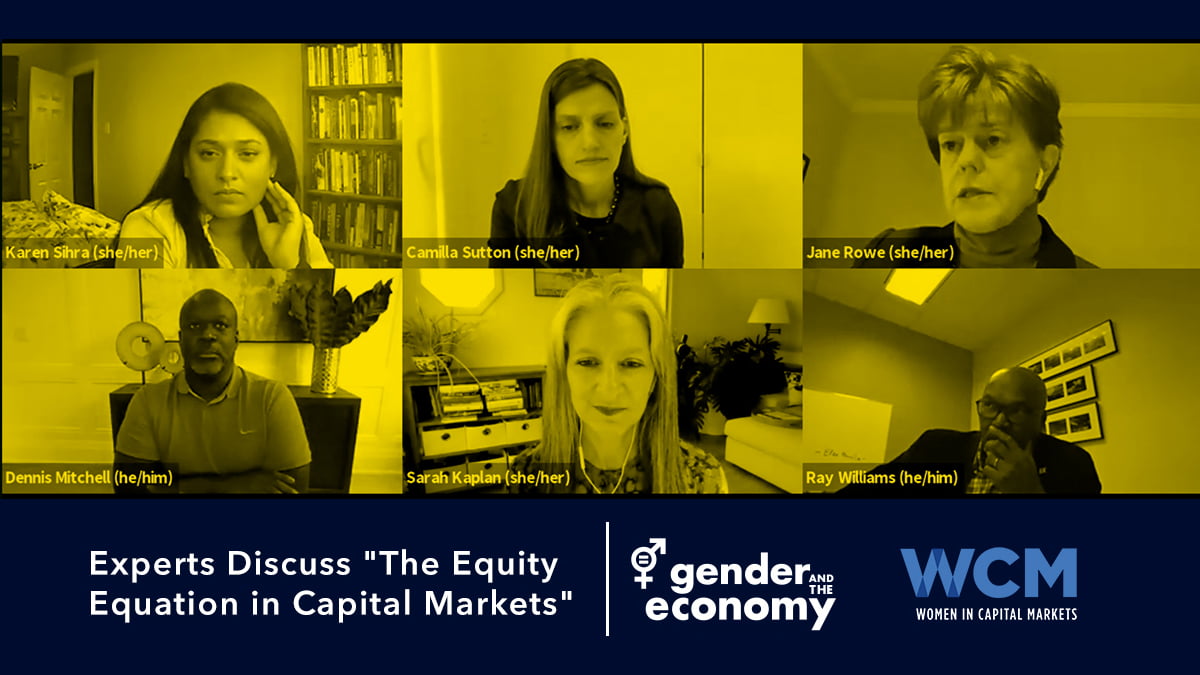While firms in Canada’s financial industry have shown leadership and a commitment to advancing diversity and inclusion, we have yet to succeed in achieving the goals many of us aspire to.
Prompted by Women in Capital Markets’ (WCM) recent report, THE EQUITY EQUATION: A Roadmap To Equity, Diversity and Inclusion in Finance, the Institute for Gender and the Economy and WCM co-hosted a discussion on the future of inclusion in the financial industry. The event featured a frank discussion with an outstanding panel of experts including: Dennis Mitchell, CEO & CIO, Starlight Capital, Jane Rowe, Vice Chair, Investments, Ontario Teachers’ Pension Plan, Karen Sihra, Director, Inclusion and Diversity, CPP Investments, Camilla Sutton, President and CEO, Women in Capital Markets and Ray Williams, Managing Director & Vice Chairman, Financial Markets, National Bank Financial.
A key take away: what the industry is doing today is not working. In order to achieve an equitable and inclusive workplace, we need a structural approach, and we must stop concentrating on the individual.
We really have to start focusing on structural barriers in our firms and within the industry. That is the secret to success.
Why do members of the LGBTQ+ community feel excluded? According to the report, 62% LGBTQ+ finance professionals do not talk about their personal life at work. They fear that coming out will impede career progress or make their workplace uncomfortable. As the job market becomes more competitive, top employers are fighting to attract the best talent. Employers must be able to show that they are offering an environment of opportunity, fair pay and inclusion.
Why are there so few Black women in the financial industry? A clear insight is that the experience of Black women is remarkably worse than for other women or for men. While Bay Street prides itself on hiring the best people from the top schools, a “like-hiring-like” mentality results in a homogenous group, dominated by white cisgender men and, to a lesser extent, white cisgender women. Black women will continue to be underrepresented in the industry until deliberate investments are taken to level the playing field.
Women, especially women of colour, and members of the LGBTQ community feel that they are not equally paid. And, evidence suggests that this is indeed true. But, managers insist that everyone is paid “fairly.” The disconnect comes in our unbalanced notion of meritocracy in which people in the non-dominant groups are seen as somehow less meritorious.
Can we rethink leadership? We can do the work to unpack what leadership looks like. Is leadership a tall, white, straight, able-bodied, cisgendered man or is leadership someone who can inspire us, lead a team and get the best out people.




